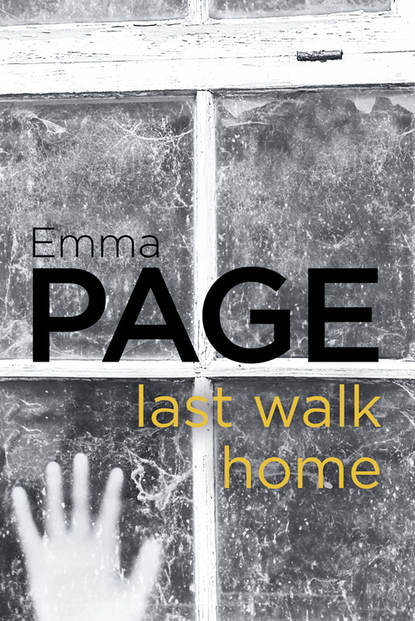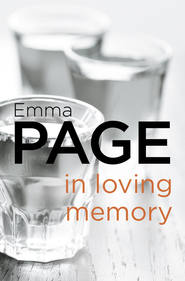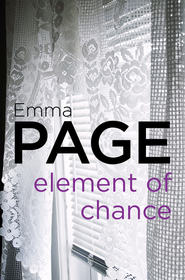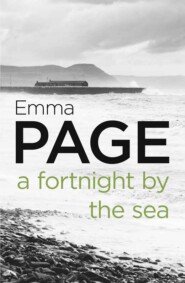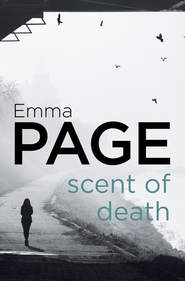По всем вопросам обращайтесь на: info@litportal.ru
(©) 2003-2024.
✖
Last Walk Home
Автор
Год написания книги
2018
Настройки чтения
Размер шрифта
Высота строк
Поля
CHAPTER 4 (#ulink_63fc4101-c67a-5ad6-912a-53e0ab0d8b34)
Five miles away, in the village of Stanbourne, Clive Egan and his landlady were about to begin supper. Clive had been working in Stanbourne for the past ten days, assisting with a central heating installation in one of the large houses. He was a tall, heavily built young man with broad shoulders and strongly muscled arms. His fair hair was clipped close to his head, his eyes were a deep clear gold with a restless darting gaze.
‘I expect you’ve nearly finished on that heating job,’ Mrs Turnbull said as they sat down to cold bacon-and-egg pie and salad. She was a perky little woman with quick neat movements and sharp brown eyes; her thin grey hair was dragged back into a scanty bun.
‘Another couple of days should do it,’ Clive said. ‘Then I’ll be working over at Longmead, a roof repair and guttering job.’
She glanced up. ‘Oh – if you’re going to be over Longmead way, perhaps you wouldn’t mind calling in at Mayfield Farm for me, ordering a turkey from Mrs Slater.’ Her oldest sister and her husband were celebrating their golden wedding early in August and Mrs Turnbull had promised a turkey for the family reunion dinner.
‘Yes, sure,’ Clive said. ‘That won’t be any trouble.’ He helped himself to potato salad. ‘I can walk up to the farm in my dinner-hour.’
‘I shall want a good big bird.’ She inclined her head, considering. ‘Be sure to explain to Mrs Slater about the dinner, tell her it must be a top-quality bird, I don’t mind paying. And ask her if they still deliver or if I’ll have to arrange to have it fetched.’
Supper had already been eaten at Parkwood, the Lloyds’ elegant late-Georgian house on the edge of Longmead village. Rather a meagre supper; it hadn’t taken the Lloyds long to despatch it.
Rachel didn’t feel called on to provide much in the way of an evening meal during the week in term-time. Henry could eat as much as he wanted in school at midday and in the course of her own driving hither and yon about the neighbourhood in execution of her many duties she was usually given a sustaining succession of cups of tea and coffee, home-baked cakes and cookies, slices of pies and quiches.
Not that Henry was disposed to be critical of his supper. He had little appetite nowadays, had grown steadily thinner over the last few years and scarcely noticed any more what was set before him.
When the supper things had been cleared away Rachel fetched her embroidery basket and settled down in an easy chair in the sitting room with the radio tuned in to a concert of classical music. There was no television set at Parkwood. ‘I’ve never felt the need of one,’ Rachel said when anyone commented. Her parents would have been horrified at the idea of introducing such a time-waster into the household and she had never seen good reason to depart from their attitudes and strictures. Parkwood had belonged to her parents and she had lived there with them before she married Henry fourteen years ago.
In his bachelor days Henry had been accustomed to television. He had lived with his widowed sister in a snug little house in Cannonbridge and they had watched many an entertaining or instructive programme together in the placid evenings.
They had led an agreeable, uneventful life that flowed steadily on and seemed as if it would continue in the same tranquil way forever. Henry was at that time deputy head of a Cannonbridge primary school with good hopes of a headship somewhere before long.
And then one February evening his sister, engaged in a little dressmaking, providing herself with a pretty new blouse for the spring, went upstairs to fit the blouse in front of the long mirror in her bedroom. Some alteration in the way the garment hung upon her caused her to frown, some difficulty in getting a good fit over one breast, but she pushed the little anxiety to the back of her mind, went downstairs again with resolute cheerfulness and altered a dart in the bodice. Eighteen months later she was dead.
The snug little house had belonged to her and on her death it passed to her son, a professional man, married with a young family, living in Scotland. ‘We don’t relish the thought of uprooting you,’ he told Henry at the funeral, ‘putting you to inconvenience, but—’
The snug little house must be sold and Henry must provide himself with somewhere else to live.
In the course of his many visits to the hospital during the last six months of his sister’s life, Henry had become acquainted with Rachel, who was an active member of the Friends of Cannonbridge Infirmary.
She befriended Henry and was very good to him in those bleak and difficult days. She was energetic, formidably competent and strong at a time when he felt he lacked all those qualities himself and so was particularly disposed to admire them in others.
Rachel soon discovered that he was hoping to find a headship as well as somewhere to live. She knew that the headship of the village school at Longmead would fall vacant within the next year and she also knew that the governors were hoping to find a candidate who wouldn’t need to live in the headmaster’s house attached to the school. It was a dwelling of no great size and the governors wanted to incorporate it into the school to provide some badly-needed extra facilities.
It was a hopeful and expansive time then, in the village as well as in the nation at large. Longmead seemed poised on the brink of growth, there was talk of a light industrial estate being built, a garage and a filling-station, new houses and shops.
The notion that Henry should apply for the Longmead headship soon insinuated itself into the air between himself and Rachel and at very much the same time another idea also found its way into the atmosphere – that they should marry.
The headship wasn’t precisely what Henry had in mind. ‘But it will do very well as a stepping-stone,’ Rachel pointed out and he was inclined to agree. He was also aware that an energetic and competent spouse, well bred and well heeled, would be no drawback on the road to higher things. He applied for the headship and became engaged to Rachel in the same month.
At the time of his marriage Rachel’s parents were old and frail and Rachel informed Henry in a tone of authority that they couldn’t be expected to live much longer. She was their only child. ‘Parkwood will come to me,’ she assured him. So also would the antique furniture, the pictures and objets d’art, together with the substantial investments on which her parents lived. After the old couple had dutifully passed on Henry would in due course be able to apply for a better headship elsewhere; the house was readily saleable and would fetch an excellent price.
But things hadn’t worked out quite like that—
Henry’s thoughts were suddenly interrupted as Rachel glanced up from her embroidery and said, ‘By the way, I’ve got a very good com dolly for you, I was given it this afternoon. It will go admirably in your little craft exhibition.’ She had spent the afternoon with an arthritic village woman who had to be driven into Cannonbridge twice a week for treatment. The woman had been clearing out a cupboard and had come across an elaborate dolly she’d made some years ago, before the disease attacked her fingers; she knew Mrs Lloyd was interested in such things.
Rachel passed the dolly across to Henry without glancing at him; she scarcely ever looked at him directly. He wondered sometimes if she had any real notion of what he looked like, if she had ever seen him properly and fully, even at their first meeting in the hospital corridor.
He took the dolly and looked at it, turning it over to study it. Beautiful, intricate workmanship; ancient, mysterious pattern.
‘Do thank her for me,’ he said. ‘The children will be most interested.’ All his exchanges with Rachel were touched on Henry’s part with formality and courtesy. No expression altered the set of his features as he spoke to her. He had learned over the last few years to keep his face calm and still at all times and as a result it was unusually free from lines without looking in any way youthful.
He crossed the room and put the dolly where he would remember to take it to school next morning. He paused by the window and glanced out at the soft blue sky, ‘I think I might do an hour or two in the garden,’ he said as he had said on a great many other fine evenings.
Rachel made no reply, absorbed again in the music and in her stitching; she was embroidering a set of kneelers for the church. She took great care over the work, knowing it would stand as a measure of her skill for years to come. Henry wondered if he had actually spoken, she gave no sign of having heard. He experienced again the curious unpleasant feeling that had begun to afflict him of late, that inside the precincts of Parkwood he no longer existed, that if he were to pause to look in the hall mirror he wouldn’t be able to see his face. A thought that terrified him sometimes when he woke in the night was that he might soon begin to find he was ceasing to exist in other places as well, and might end up before long not existing anywhere at all.
He left the room and Rachel scarcely noticed that he’d gone.
He went up the graceful curving staircase to his bedroom across the wide landing from his wife’s room. He changed into an old pair of trousers and a superannuated shirt and went downstairs again and out through a side door into the garden.
The air was warm and dry. A few feet from the door a great bed of cream and pink spiræas flaunted its full splendour but he gave it only a passing glance. He went over to the toolshed and selected a billhook, then he walked with his head lowered down to the far end of the garden, overgrown and midgy, full of birdsong and humming green shadows.
He began to lay about him with ferocity, slashing at the grassy tussocks and the long arms of brambles, laying low the great strong flowering weeds, putting paid to the offending growths for the time being, if not unfortunately finishing them off for ever.
The evening air was still warm and caressing when Janet Marshall came out of the back door of her cottage and walked up to Mayfield Farm for her goat’s milk. She bought the milk as she needed it, usually three or four times a week.
Facing her as she walked up the field was the end wall of the turkey sheds which had been constructed some years ago from existing farm buildings. The sheds formed three sides of a rectangle, the open side facing across the field to the back of the school. She could hear the clatter from inside the sheds and as she drew nearer, the raucous cries of the birds.
Ken Bryant, her next-door neighbour from Mayfield Cottages, came out of the rear of the main farm buildings some little distance ahead on the right and walked down the field towards her, on his way home.
He glanced over and saw Miss Marshall with her lithe, slender figure, her beautifully shaped head covered in close curls. How neat and trim she looked in her casual outfit of jeans and check shirt. He closed his eyes for a moment in a brief shudder at the thought of his wife in a similar rig.
He raised a hand and called out to Miss Marshall. She halted and stood waiting till he came up to her. ‘I wanted to have a word with you about Jill,’ he said. His dark eyes showed open admiration.
‘Yes?’ She gave him back a courteous, neutral glance. A strong growth of black hair showed at the open neck of his shirt. He gave off a powerfully masculine farm odour – by no means disagreeable – that no amount of baths or changes of linen could ever totally remove.
Ken was ambitious for his children and he was currently anxious about his daughter’s maths. ‘She’ll be going to the Cannonbridge Comprehensive in September, as you know,’ he said, ‘and I’m afraid her maths are going to let her down. I shouldn’t like her to get off to a bad start.’ He’d be grateful if Miss Marshall would agree to coach Jill in the holidays. ‘You’ll be here for some part of the time, I’m sure,’ he added. ‘Of course I’ll pay whatever’s right and I’d see she wasn’t a nuisance to you.’
‘Jill’s not in my class,’ Janet pointed out.
‘I know that but I don’t like to ask Mr Lloyd, he’s got a lot on his plate. And Parkwood’s a good mile and a half away, it wouldn’t be anywhere near as handy for Jill. I’m sure Mr Lloyd wouldn’t mind you coaching her.’ He saw her hesitate. ‘Think about it,’ he urged. ‘You’ve no need to give me an answer right away, I’ll mention it to you again later.’ He went off down to his cottage, whistling.
As Janet passed the open front of the turkey sheds the young resident farmworker, Neil Fleming, came out of one of the sheds. He’d already changed out of his white overalls and was shrugging on a drill jacket.
‘Hello there!’ He gave her a friendly smile. He’d given her the eye, bowled over by her looks, when she first came to Longmead back in the spring, not many months after his own arrival at Mayfield, but it had taken him very little time to realize she wasn’t interested.
He walked with her towards the dairy on his way to the farmhouse. ‘I’ve got quite fond of goat’s milk myself since I’ve been here,’ he told her with a grin. ‘I’d never drunk it before, never fancied it. I always thought it’d have a rank taste but now I’d sooner have it than cow’s milk.’
He was a pleasant-looking lad with a fresh open face, curling sandy hair and a thickly freckled skin. He had a very full lower lip and his grin showed a milk tooth surviving in the front of his mouth. It gave him a touching, boyish air. He was twenty-five years old, studying and saving in the hope of getting into farm management; he felt there was precious little chance of ever owning a place himself.
He went on through the rear entrance of the farmhouse, a large old dwelling of mixed period and considerable charm, while Janet turned aside into the dairy, fresh and cool, lined with white tiles.
Mrs Slater was standing by a window, carefully setting a shallow pan of milk down on a slabbed surface. She glanced briefly up as Janet came in and gave her a friendly nod, then she gently settled the pan into place. She straightened up and wiped her hands on a towel. She drew a long breath and moved her shoulders, easing them.
She was a small slim woman in her middle thirties with a clear, fine skin and short light brown hair simply cut. Her lips were curved in a faint habitual smile and her customary look was one of amiable reserve. Over her freshly laundered dress of flowered cotton she wore a white overall with the sleeves rolled up, showing her pretty arms, smooth and rounded, with delicately tanned skin.





